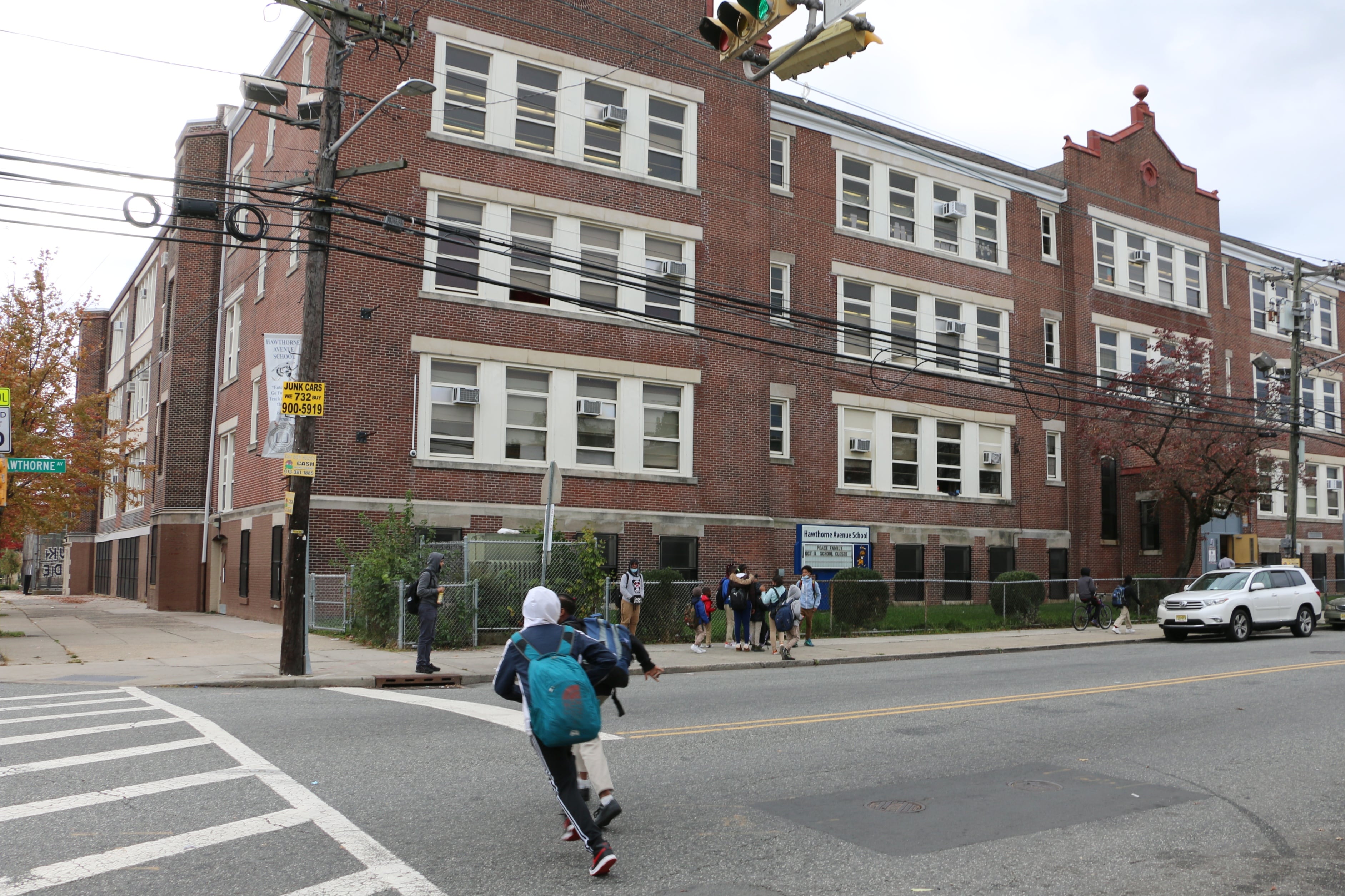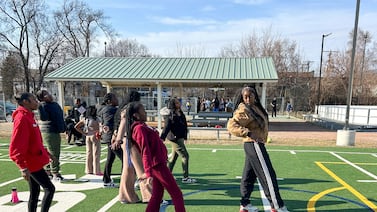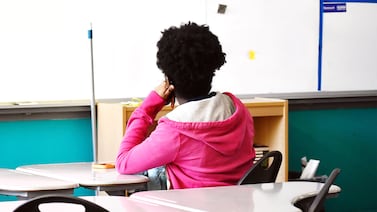At the beginning of this school year, Lisa Flores worried that her 7-year-old son would not get the support he needed at Newark’s Dr. William H. Horton Elementary School.
Eli, who has a speech delay, was just going into second grade and needed services that seemed slow to come.
Veronica Searles was concerned for her son, too. Deion Searles has ADHD and anxiety and receives special education services — but as classes began in Newark Public Schools last September, transportation issues threatened to keep him from even getting to school.
The two mothers and the barriers their children have to overcome show some of the challenges faced by the roughly 6,400 students with disabilities who attend Newark Public Schools. They are among the district’s most vulnerable — and have been some of the students hardest hit by the fallout from the COVID-19 pandemic.
Newark expects the number of students with disabilities to grow next year as the students in need of special education services are rising year over year across the country.
In the fall, as classes kicked off, Newark parents of students with disabilities said their children needed more support after some missed out on specialized instruction or therapy sessions that were difficult to provide during remote learning. Others were continuing to push for compensatory services, a legal right students in New Jersey and across the country have for making up instruction or services they might have missed during the pandemic.
Nine months later, parents like Flores and Searles say they are looking forward to next year, despite looming concerns about their child’s physical and educational progress and available resources.
Parents push for more educational support post-pandemic
Eli, who has been at Horton Elementary since kindergarten, will start third grade in the fall. He still struggles with speaking and is below grade level, his progress derailed after the district switched to remote learning in the spring of 2020.
That prompted Lisa Flores, a mother of two, to become a full-time advocate for her child by pressing the district for compensatory education. In January, Eli began receiving additional one-hour speech sessions four times a week before school, which Flores said she is thankful for but has not yet yielded improvements in her son’s speech.
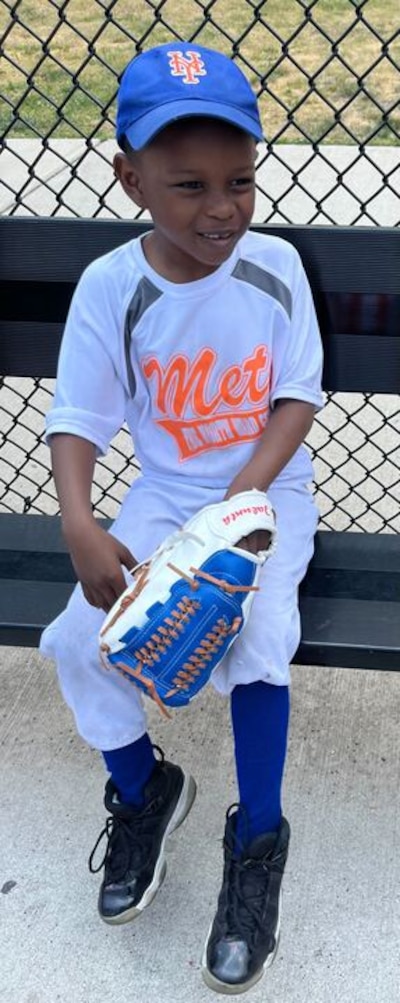
“I don’t think it was good enough to catch him up to where he needed to be,” Flores said. “But it was good for him.”
This year, the district hired at least six speech-language specialists and contracted with outside service providers to bring additional support in occupational, physical, and speech therapy for its students. But as the district works to help students catch up, parents like Flores continue to push for more.
Flores has an ongoing compensatory education case after filing a complaint with the state’s office of special education in October. She hopes Eli can receive more make-up services to improve his regression in speech, an effect of remote learning during the pandemic, Flores said.
In the meantime, she is happy to see her son become more involved in other activities like baseball where he is learning to be “a big kid” and relate with other children.
“I see him speaking up more for himself and I’m just really proud of him,” Flores added. “That’s what I’m looking forward to [next year]. Just watching him mature more and be able to advocate for himself.”
Newark mothers push for more support for their children
Newark Public Schools has a long history of struggling to implement programs and support for its students with disabilities. In 2012, the state began monitoring the district following the settlement of a class action lawsuit that accused the district and state special education department of not evaluating students for special education services or providing resources in a timely manner.
Last summer, district officials were ordered to take corrective action by Nov. 1, 2022 after the New Jersey Department of Education found that the district failed to meet six federal responsibilities for students with disabilities.
The state also found problems with reporting in education plans, notifying parents of meetings, and missing meetings with parents and students with disabilities as part of responsibilities mandated under the Individuals with Disabilities Act (IDEA).
The district’s office of special education said in November 2022 that it corrected its problems by providing additional training to its child study team members on the missed areas.
But throughout the school year, many parents like Searles have had to turn for help to outside organizations, such as Nassan’s Place, a Newark community group providing support and activities for autistic children and their families.
The founder, Nadine Wright-Arbubakrr, is also the parent of 18-year-old Nassan, a Newark Public Schools student who has autism and is nonverbal, and is the inspiration behind Nassan’s Place.
Like Searles, Wright-Arbubakrr has worked to get her son the services he needs at his school, New Jersey Regional Day.
She is happy with the staff and teachers at the school but found it alarming that her son could not attend the after-school program because there wasn’t a nurse on-site during that time.
“Now going into the 2023-2024 school year,” Wright-Arbubakrr asked, “ will my son be denied an after-school program because he has a seizure disorder?”
Other mothers, like Rashae Phillips, have had a hard time getting services for their kids in charter schools.
Phillips is the mother of a rising seventh grader at KIPP BOLD Academy. Under her son’s IEP, he must receive occupational therapy due to ADHD and ADD. But Philips has struggled this year in finding additional support at her child’s school and isn’t sure if he’ll continue his education there next year.
She does not want him to attend the city’s public school system and is prepared to travel outside of the district to get him the support he needs.
“It’s just frustrating to me because of these things that I’ve been fighting to get for years,” Phillips said.
High school students with disabilities rely on district support
For Veronica Searles, the start of this school year was expensive, as she had to spend $80 on Lyfts to get her son, Deion, to and from school during the first two days of classes after the bus never picked him up.
Deion, now a rising freshman at the Newark School of Data Science & Information Technology, refuses to travel in the district’s yellow buses due to an incident in fifth grade where the bus didn’t bring him home until 8:30 p.m., his mother said.
The South Ward family is on a tight income and as Deion enters his first year of high school this fall, Searles hopes she can rely on the district’s transportation services to get him to campus.
The district contracts with busing companies that provide transportation in minivans or smaller buses, which Deion prefers to ride in. Under federal law, students with disabilities must be provided with transportation under their Individualized Education Programs.
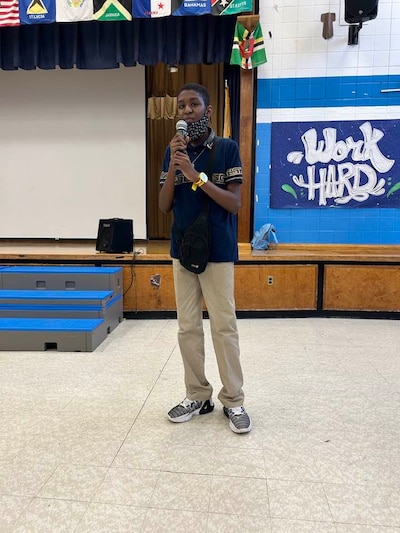
“My only concern is that he’s getting older and the only thing he wants to do is what the other kids do and I’m not confident enough that he can travel by himself,” Searles said.
Despite some of the challenges their children have faced this year, Flores and Searles say they are proud of the struggles their sons have overcome and celebrate the small victories in their lives.
In April, Deion asked the principal at his former school, Camden Street School, if he could organize an autism awareness event. He is also involved in helping other students in Nassan’s Place and participates in activities year-round.
Deion completed his last year of middle school with good grades, his mother said, and worked hard to be accepted into the high school he wanted to attend.
She offered this wish for next year: “I just pray that he’d meet wonderful kids and have a good experience, learn a lot, and find out more about himself and be more independent.”
Jessie Gómez is a reporter for Chalkbeat Newark, covering public education in the city. Contact Jessie at jgomez@chalkbeat.org.

